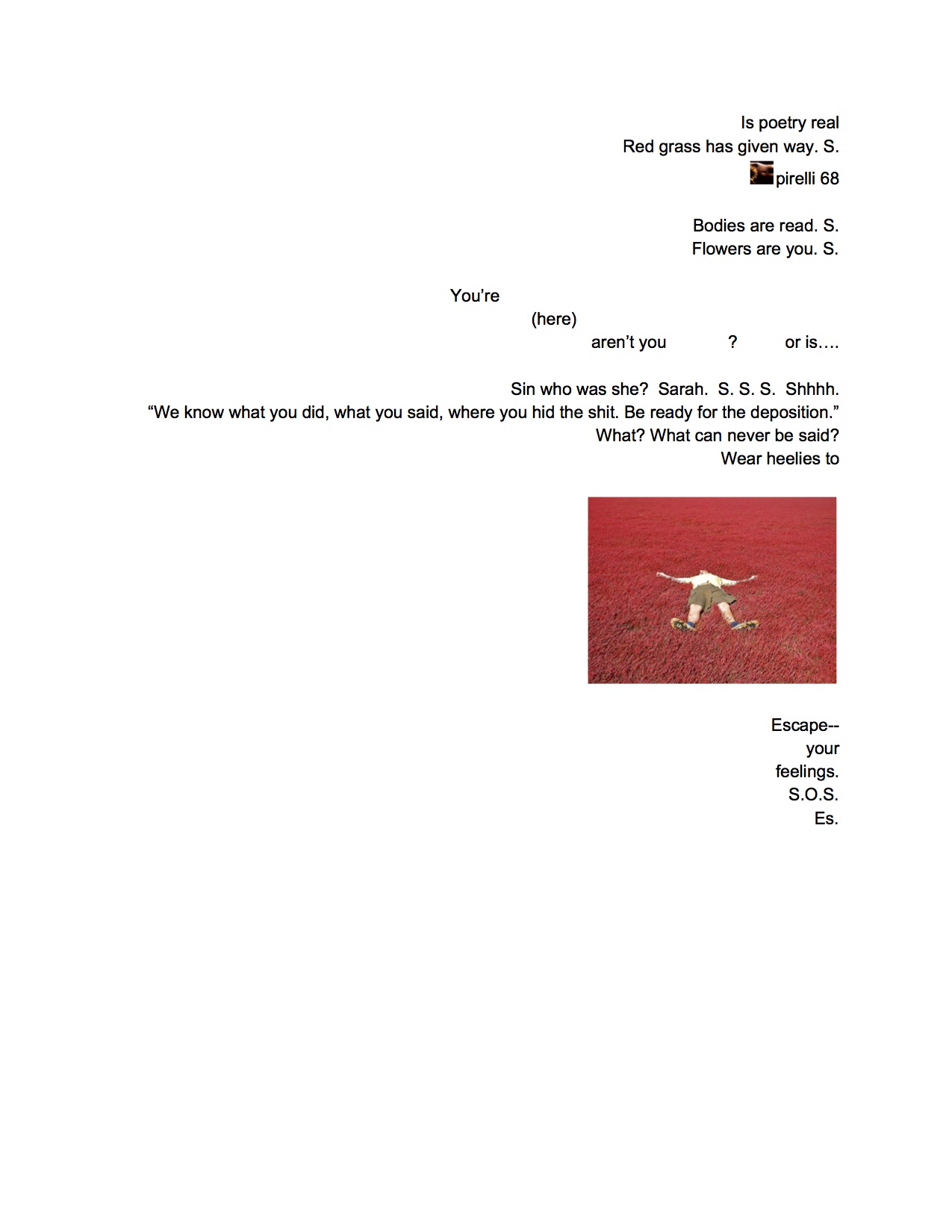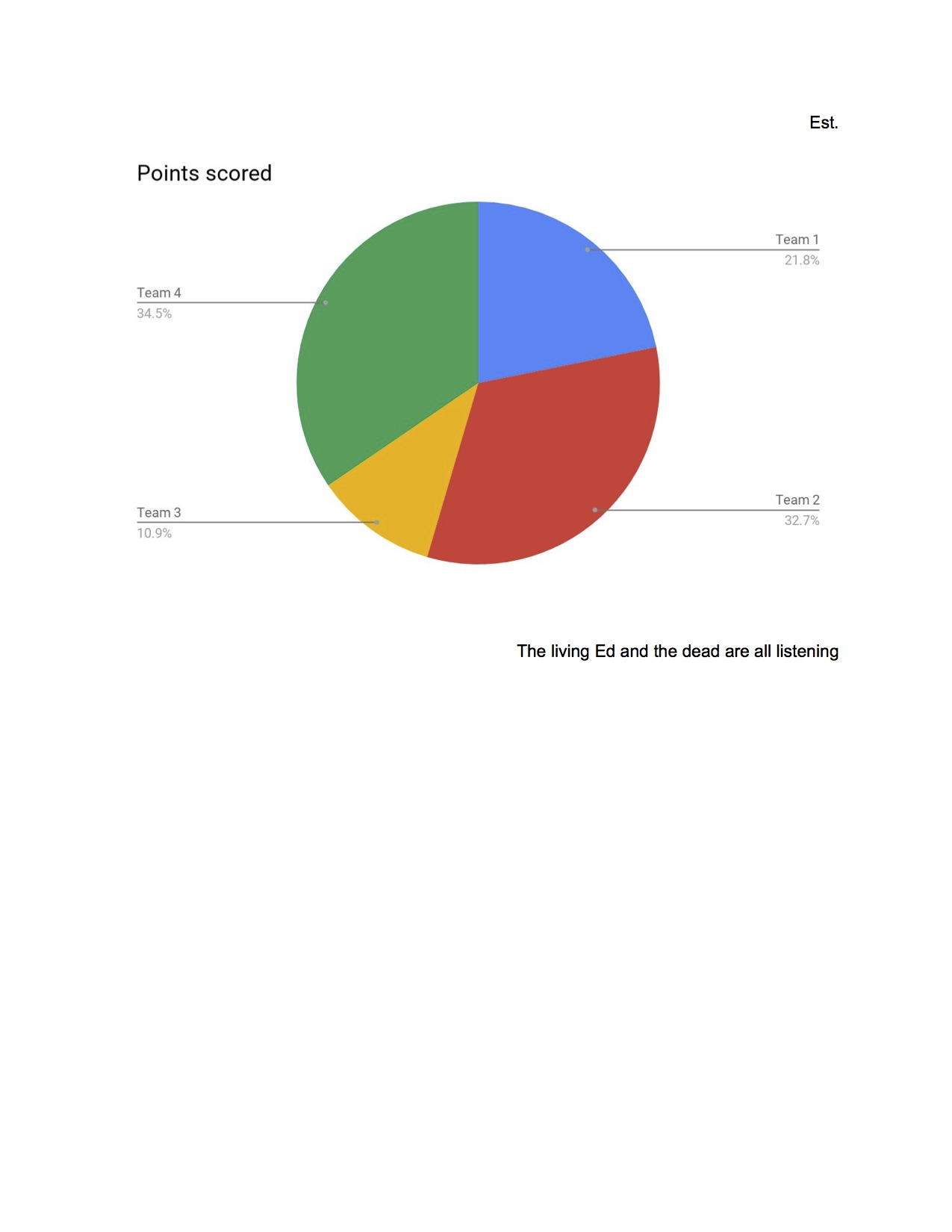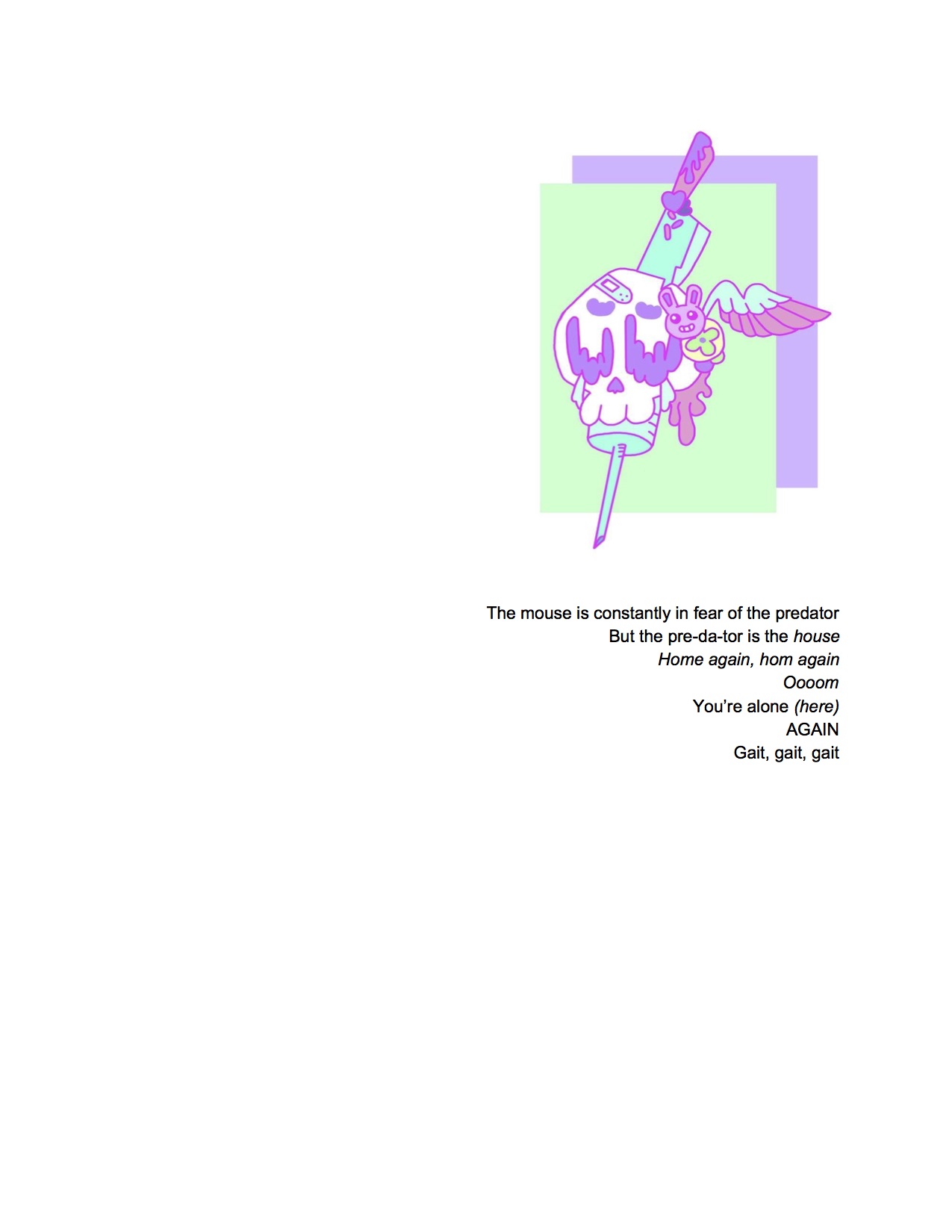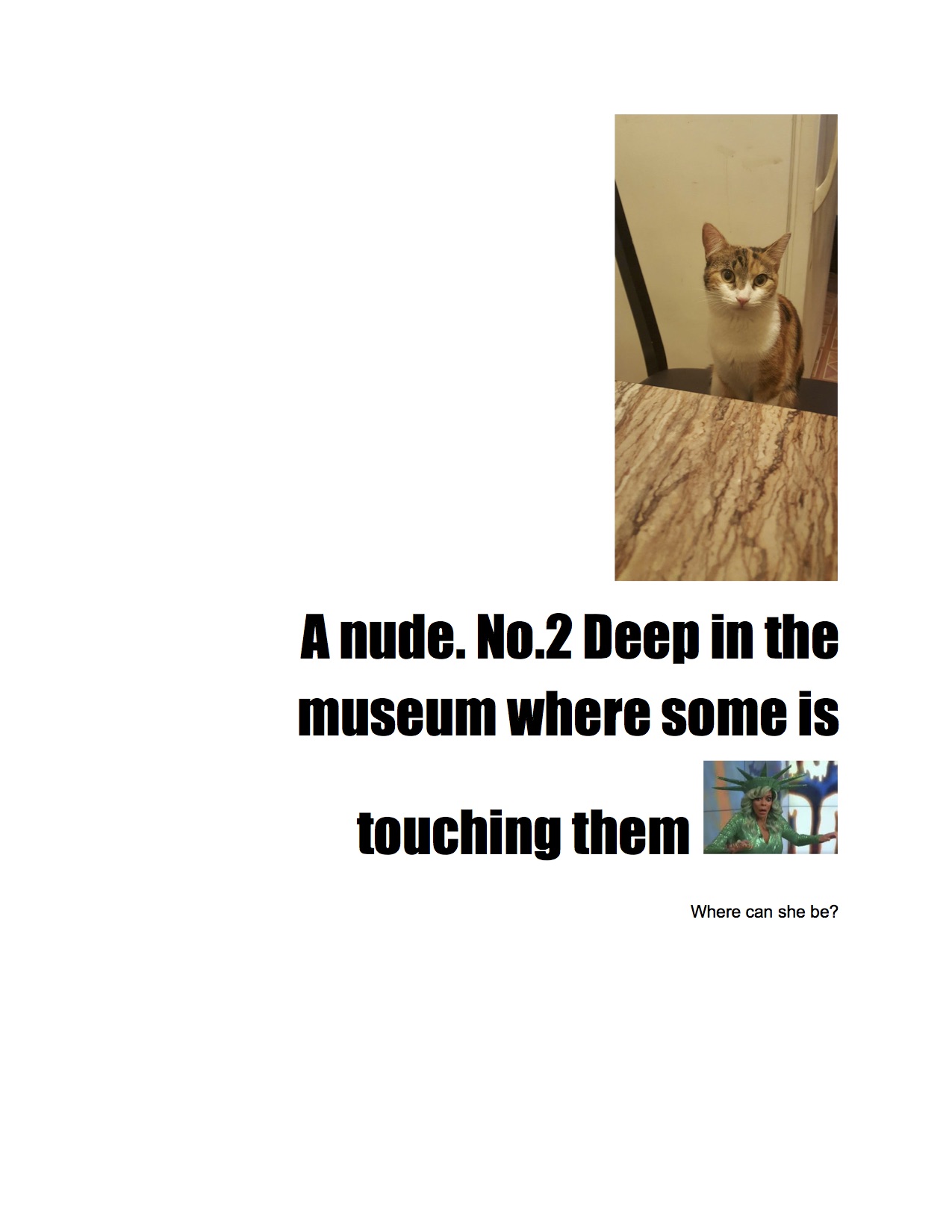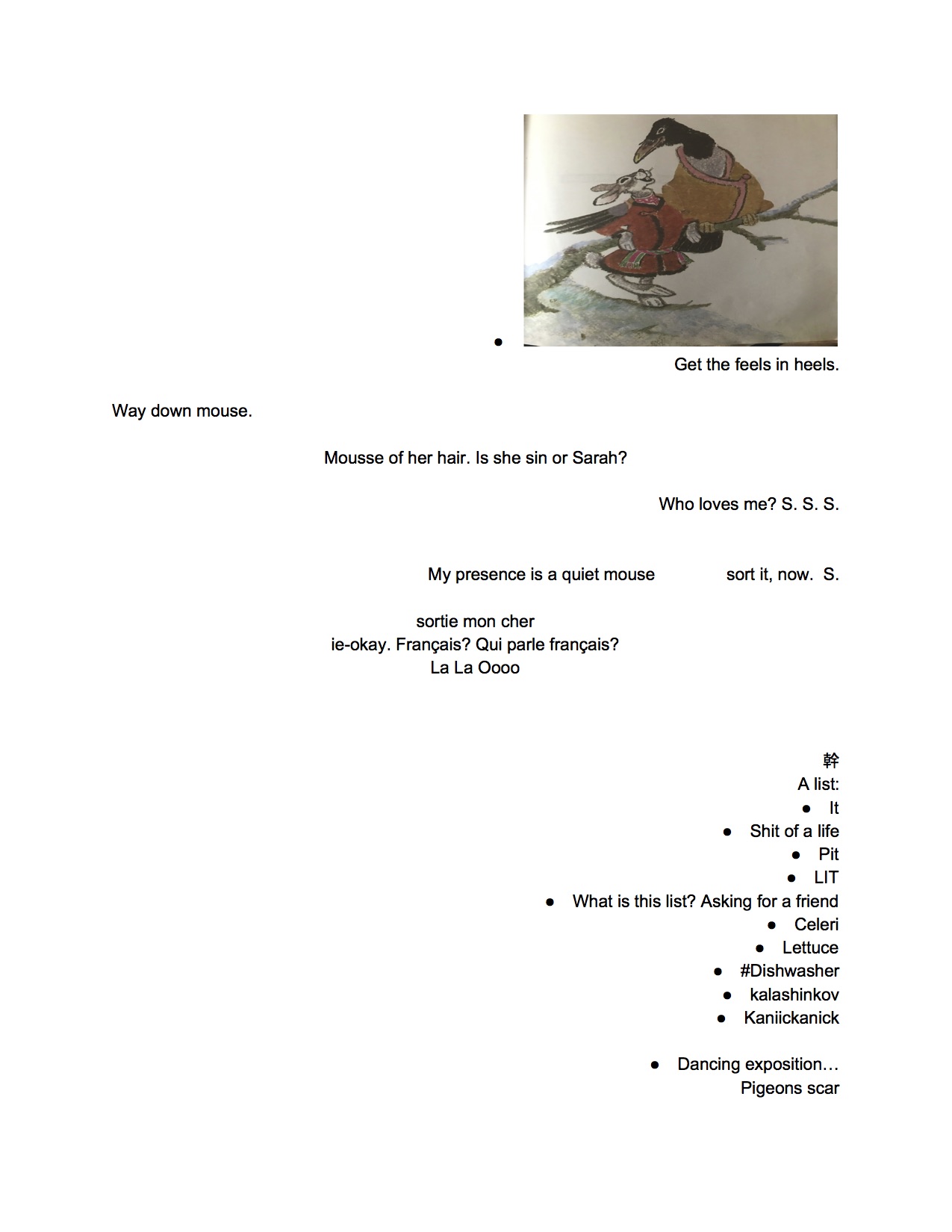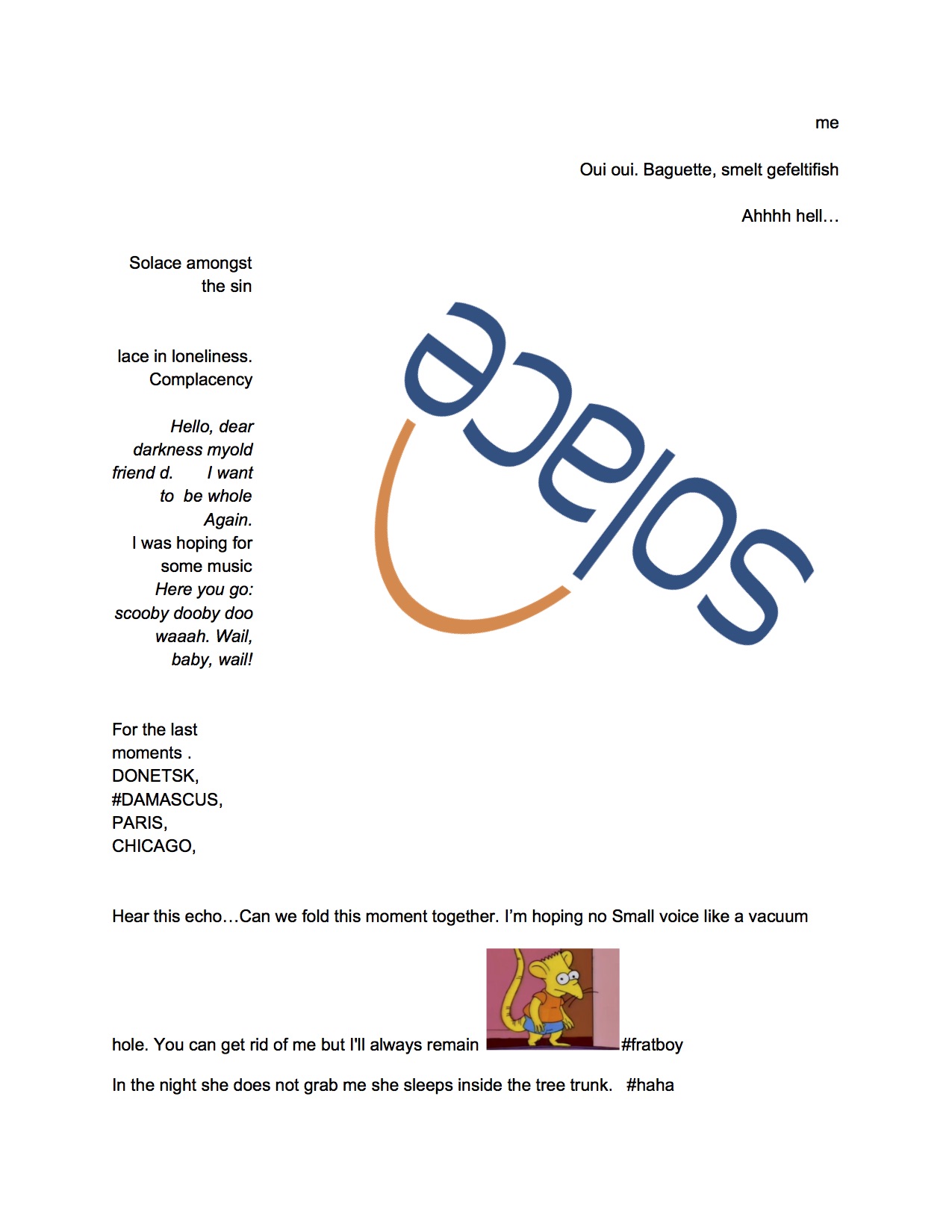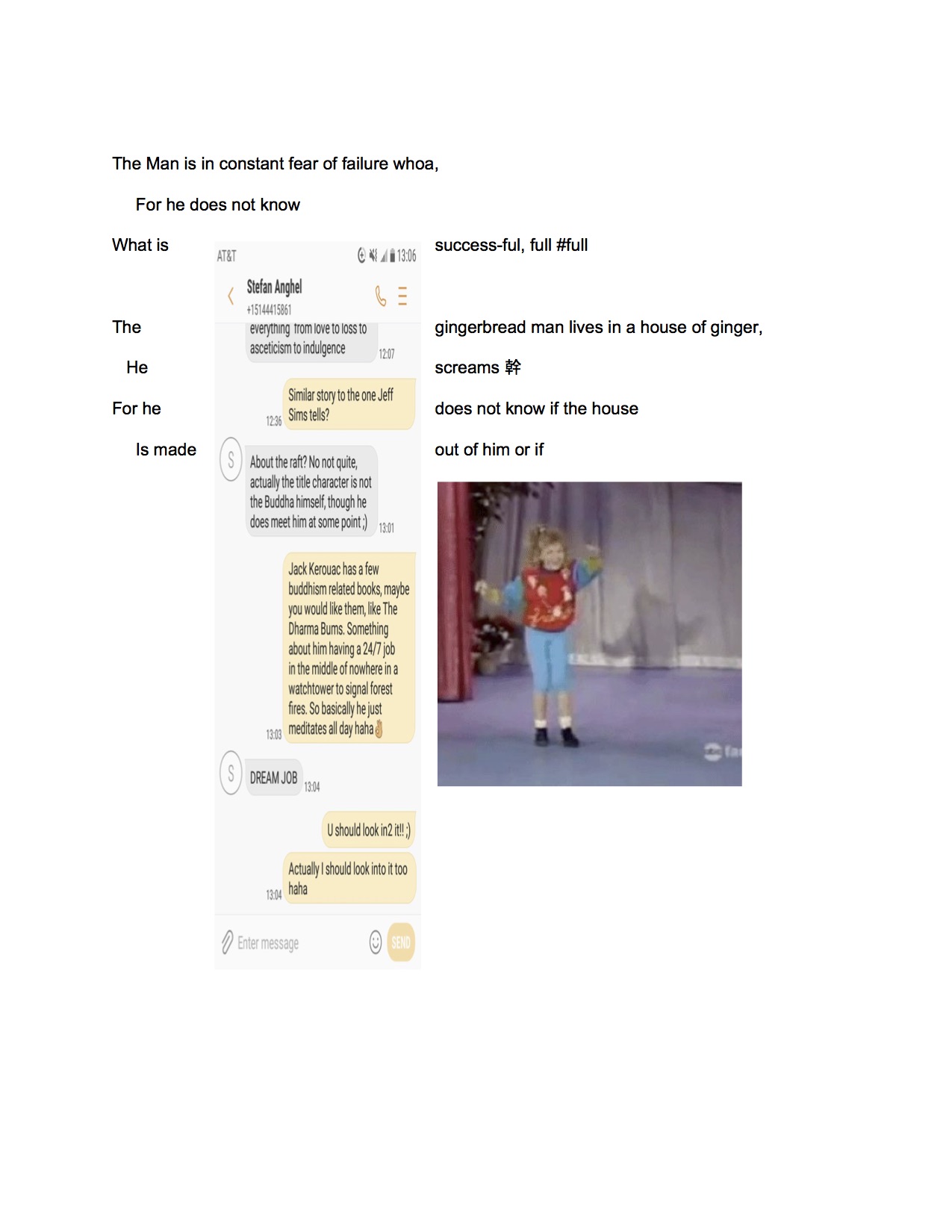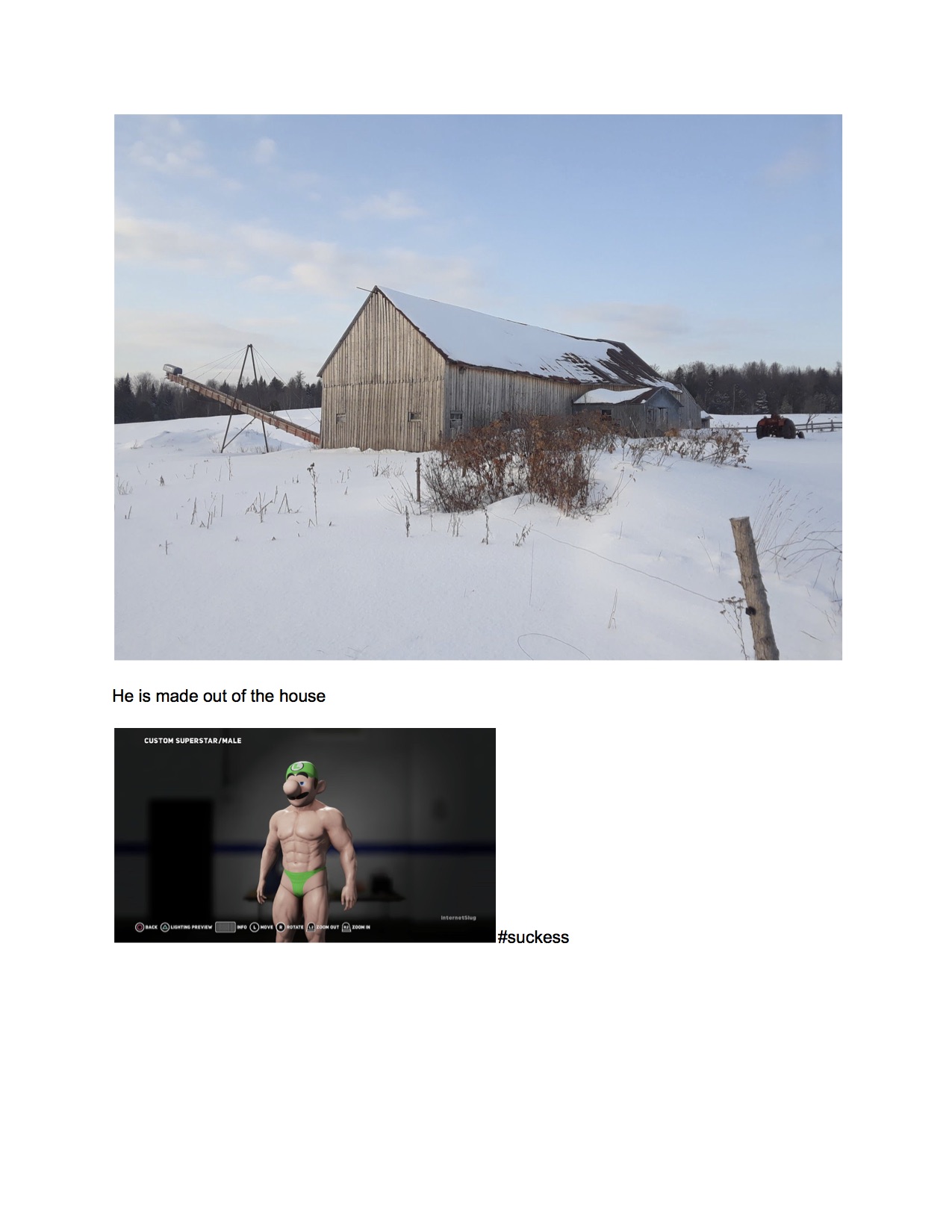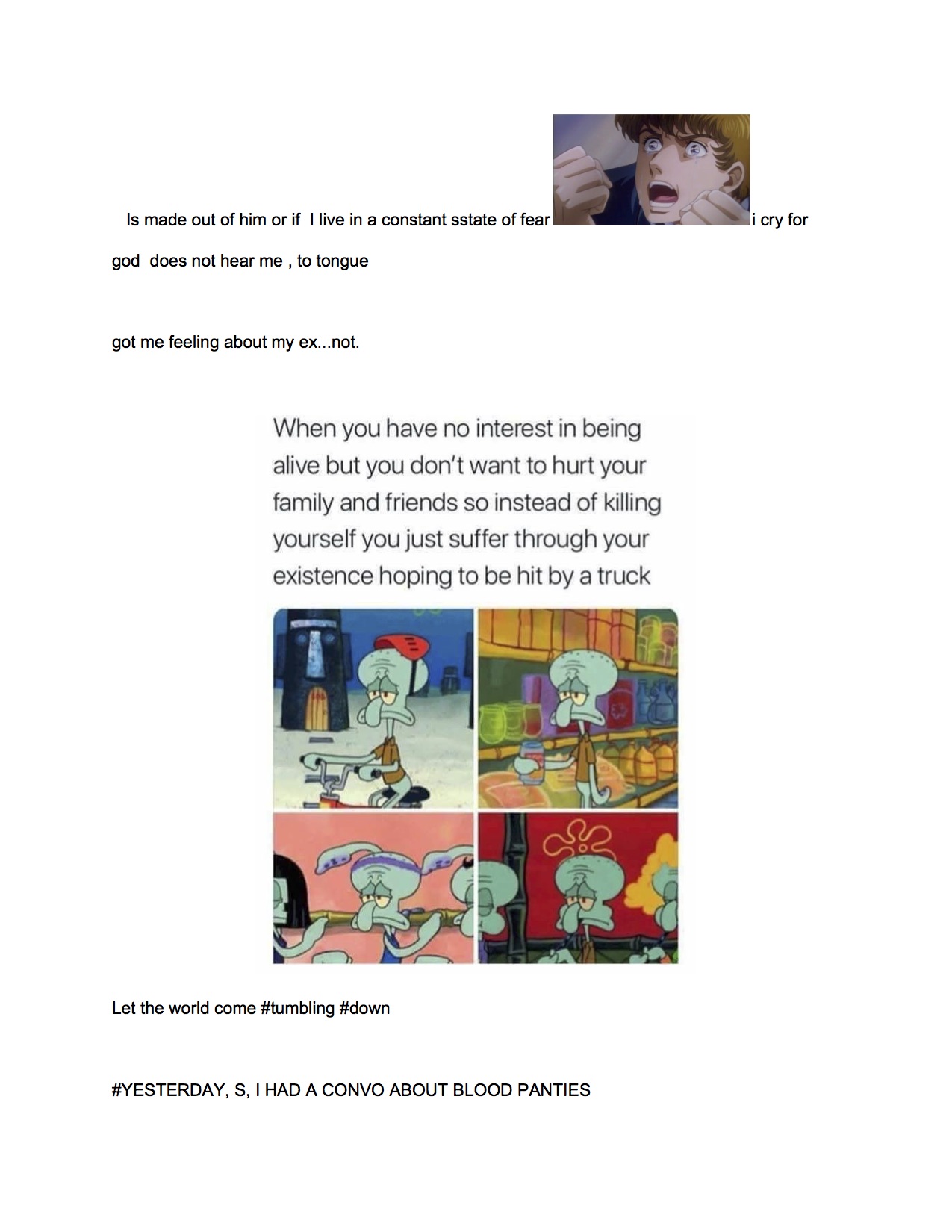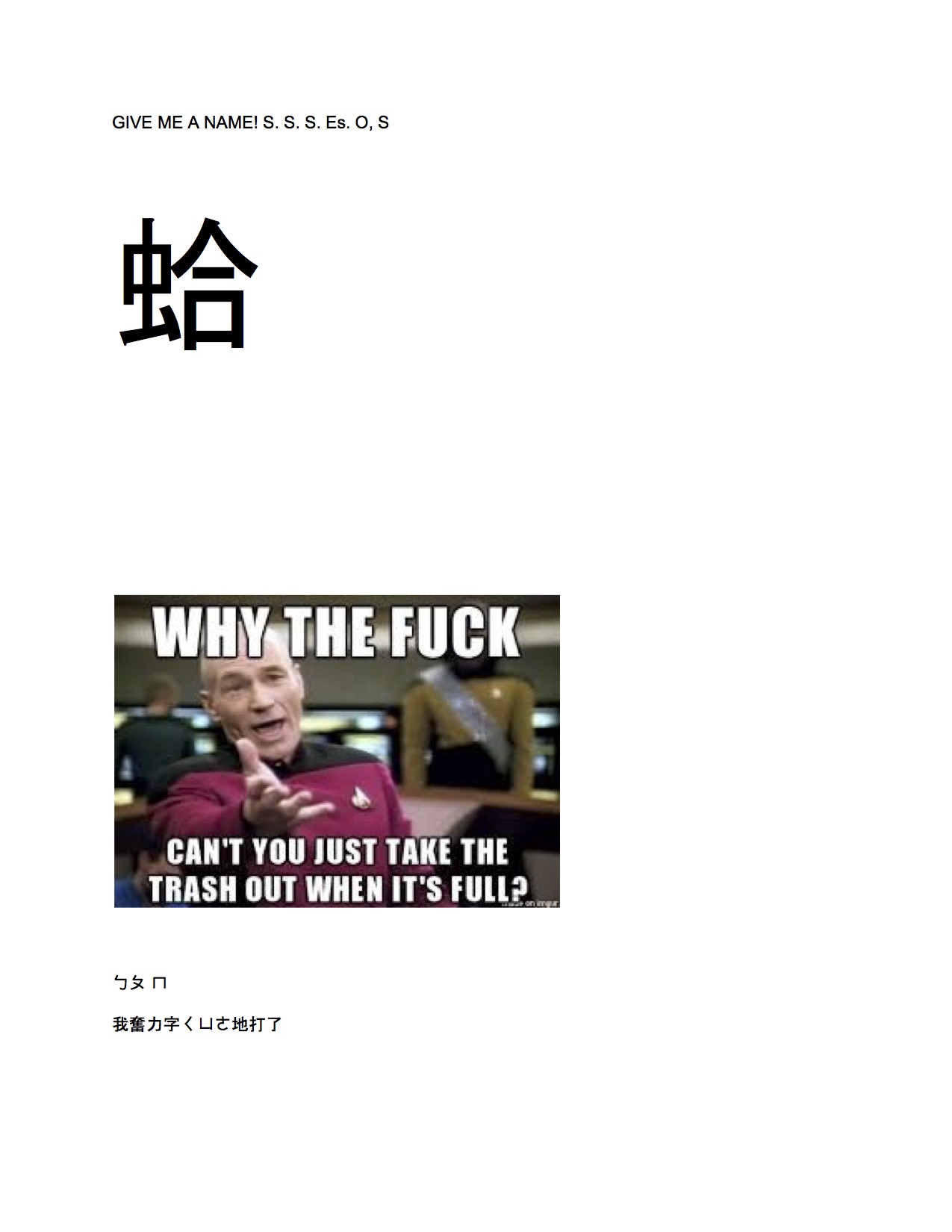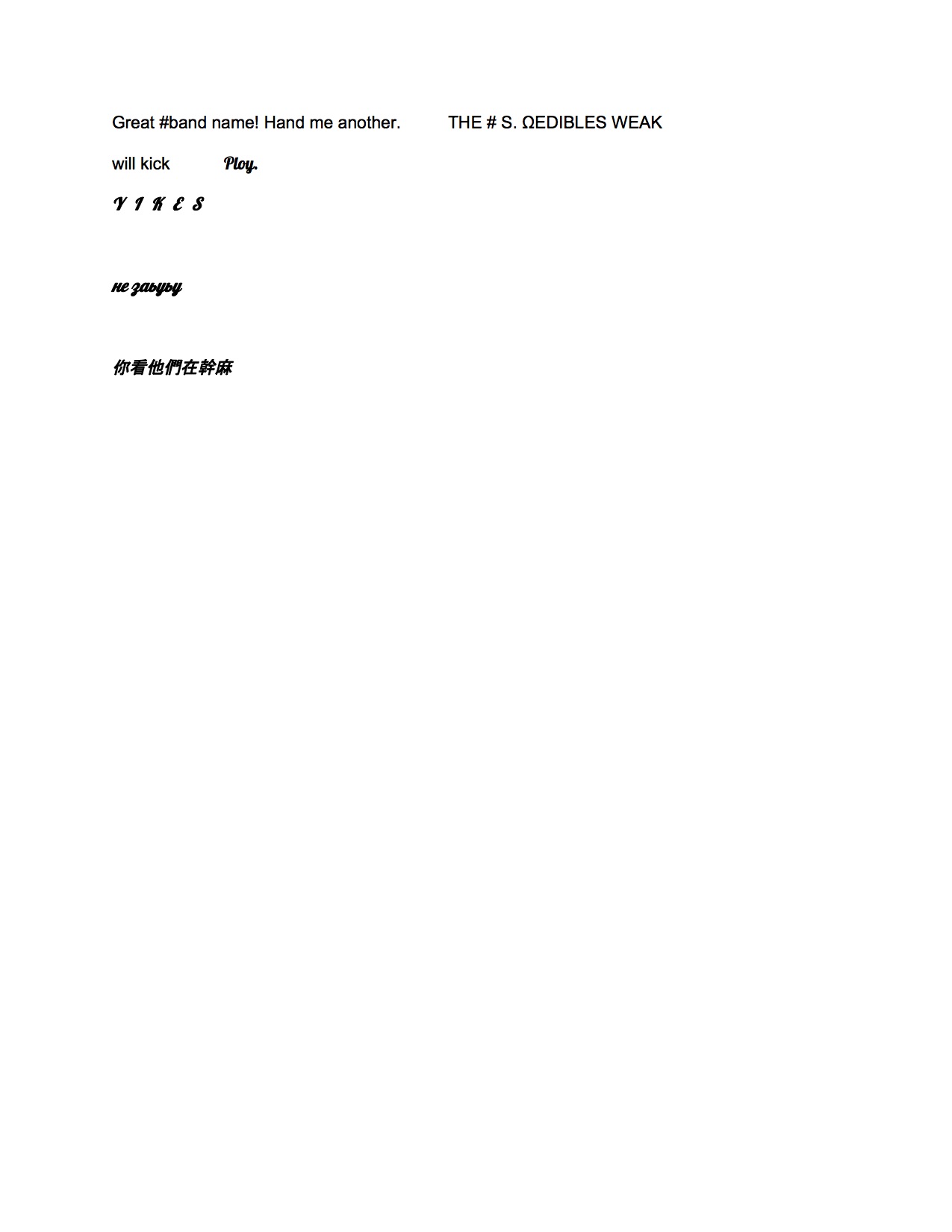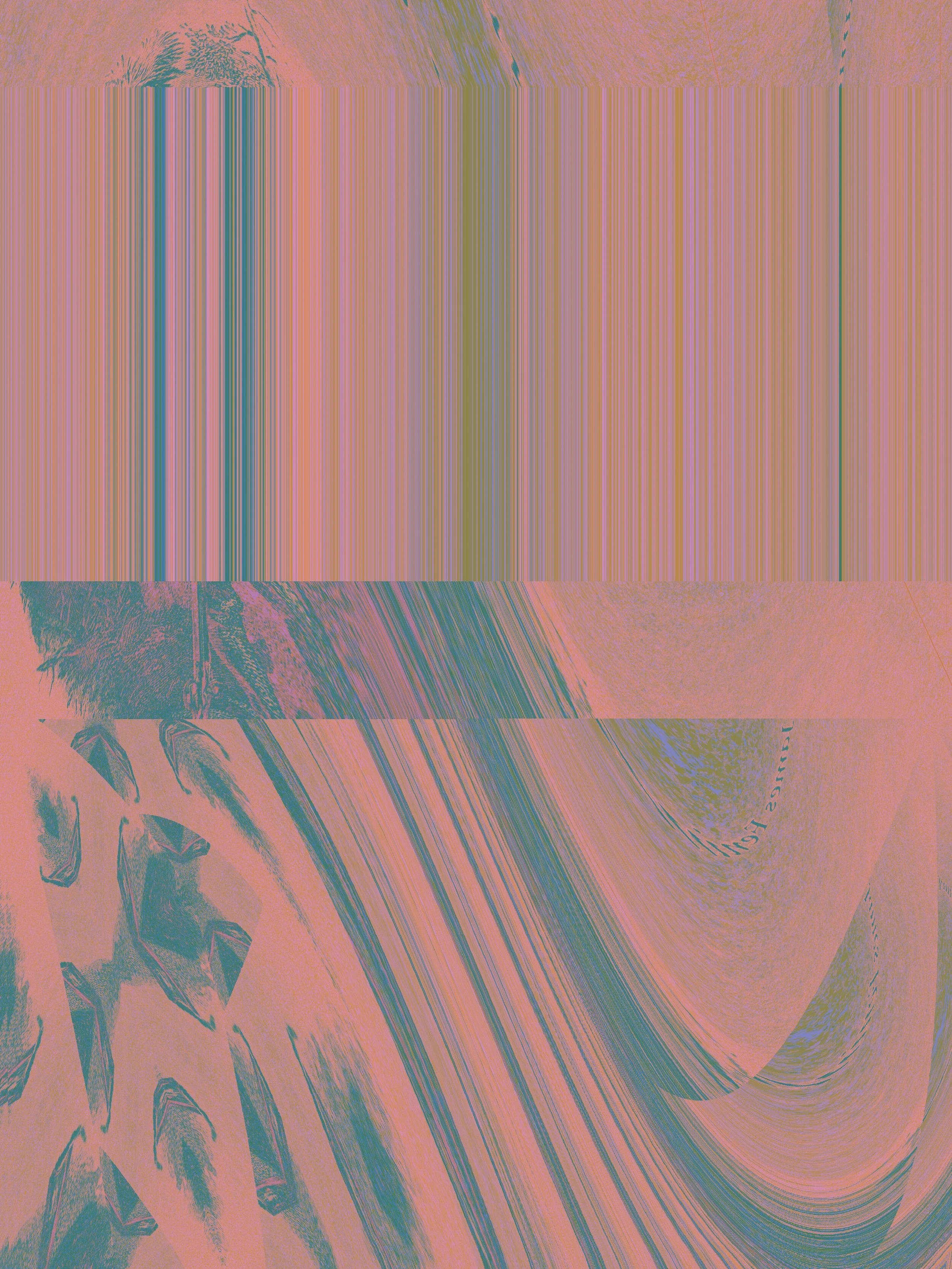At the 2017 NEMLA conference in Baltimore, Joe Hall, Jeff T. Johnson, and myself discussed overlaps in the socio-political state of Precarity and the aesthetics of online synchronous collaborative writing. The panel was very productive and generated as many questions as it did more complex considerations. In the spirit of keeping the conversation going, I have asked each panelist to provide a brief summary of their paper along with thoughts and questions that are guiding their further thinking about productive interminglings of precarious labor and creative risk in digital environments.
JEFF T. JOHNSON
In the spirit of precarious online collaboration, of me-s that are not me, of becoming me-s and other me-s, of the attempt to subdue the authorial tyrant (authorship is arbitrary power), I offer a couple examples of collaborative folly in which I have taken part.
Terms
Here I use the following (fifth) sense of folly “A popular name for any costly structure considered to have shown folly in the builder” (OED online). The cost here is time, paid as risk (or wager that others will pay in attention). Here, the financial metaphor is contested.
And I proceed to link and even conflate precariousness and provisionality, in the following senses:
Provisional: 1a. Of, belonging to, or of the nature of a temporary provision or arrangement; provided or adopted for the time being; supplying the place of something regular, permanent, or final. Also: accepted or used in default of something better; tentative. (OED online)
Precarious: 2b. Dependent on chance or circumstance; uncertain; liable to fail; exposed to risk, hazardous; insecure, unstable. (OED online)
One folly is a time-costly provisional structure that existed, precariously and holographically, for one month in 2015. Another folly is a conceptual (and precarious digital) architecture and its accompanying theoretical interface.
One is a month-long time-warped improvised online high-school drama. Another is an ostensibly networked interactive open-field digital concrete poem that could become a time-and-space-fluid archive of writing.
All-Time High was a Netprov (internet improv) that ran in July 2015. It had a basic narrative structure worked out in advance, and a team of showrunners and featured players to keep it rolling, but it was built for drop-in public engagement. It was designed to be a collective online hallucination that would vanish after 28 days of infectious fever dream: What if everyone was back in high school, including you?
The Archiverse is a conceptual compositional space, and Letters From the Archiverse is a poem I have been writing in AutoCAD drafting software for the past 9 years, in a version of that conceptual space. For the past 5 years or so, I have been theorizing The Archiverse with digital media scholar Andrew Klobucar. We are currently developing a networked tablet app version of The Archiverse, which will allow an unlimited number of reader/writers to collaborate in real time, but also explore and manipulate an archive of open-field composition at any moment of its composition. The ambition of the project is to reimagine the way language is collaboratively positioned (and manipulated) in time-space. It is also an experiment in decentralizing and distributing—or even atomizing—authorial agency.
So my primary concern is dispersed authorship, collective texts and their resulting collections as digital archives. But I’d like to raise a related line of inquiry, in the context of this panel.





